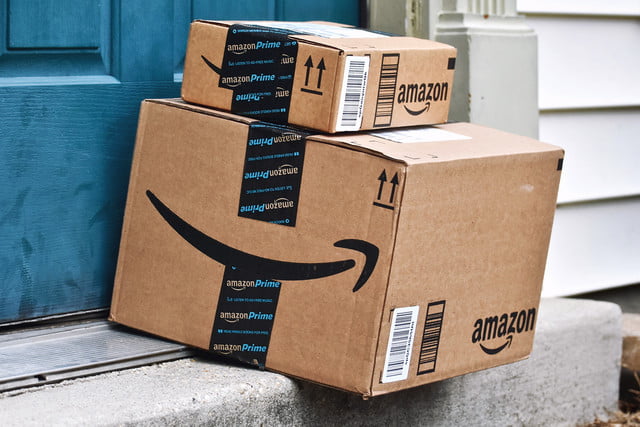Last week we sent out a newsletter to our Educational list that talked about how we work with Amazon. We had a member have a negative reaction to it and he (Tom W.) wrote me a nicely written, considered email.
He likened our highlighting Amazon (and our efforts to get people to use it, even though they don’t get direct benefit) to his experience as a regulator watching companies selling Whole Life or Universal Life insurance policies. Apparently, the companies that would sell these kinds of insurance products would promise that the buyer would make lots of money in the future from the attached savings account, but in his experience, that was never true. He wrote that the only folks that would benefit from our suggestion were iConsumer and Amazon, so he’ll “never use iConsumer to shop at Amazon”. His belief is that the odds of his shopping making the stock he owns worth more were “slim to none”.
I respectfully disagree. I think the odds are terrific. First, I’d say if it isn’t hard to do (shopping at Amazon via iConsumer), even if the odds were terrible, why not use iConsumer? Second, I find the math supporting shopping to be really clear and persuasive. It’s all because of the beauty of the multiple and the power of the masses. Sure, just one person makes a small (but still measurable) difference. Lots of people, together, make a big difference.
Here’s my back of the napkin calculation: Let’s say that iConsumer has 60,000 members. And we get ten percent of them to use Amazon via iConsumer. And let’s guess that those folks spend an average of $1,000 per year. That means iConsumer would make about $300,000 per year, just from Amazon. 6,000 x 1,000 x 5% commission. Just from our existing membership.
Here’s what the $300,000 gets us: We’d spend it on new shopper acquisition. That money should get us another 15,000 shoppers, give or take. They’d shop and make back that $300,000 within a year (they’re doing better than that now, but let’s be somewhat conservative).

The stock market (fingers crossed) would value that $300,000 at a handsome multiple of earnings. RetailMeNot at its peak had a 47 P/E (price to earnings) multiple. Let’s say we get a 40 P/E multiple (that’s still very high in the stock market world but we’re trying to be worthy of such a multiple). That means the stock market would value that $300,000 of Amazon revenue at $12,000,000. That’s $12,000,000 of market cap (market capitalization) just from Amazon alone. Then you’d have to add in our other earnings. As I write this, the stock market values iConsumer at around $18,000,000. Tom’s shares would be directly affected by that (in a very positive way).
Just to pile on here: that’s $300,000 of cash being generated. Yearly. You don’t need an accounting degree to know that more cash is good.
Now let’s look at it the other way around: Let’s say we go out and raise that same $300,000 from investors. At today’s $18,000,000 valuation. They would own about 2% of iConsumer after that. Tom’s stake would be reduced by 2% – while he’d own the same number of shares, they would represent a smaller share of his total ownership than before we raised the money. That’s a roundabout way of saying money we earn (rather than raise) is non-dilutive, and non-dilutive is a very good thing.
And that’s why Tom, along with all of us, should use iConsumer to shop at Amazon. Even though we don’t earn shares from that activity.
* Big Asterisk About P/E Ratios
In this post I use P/E ratios (a multiple of stock price to earnings) quite liberally, and in actuality, somewhat inaccurately. Because iConsumer uses stock as a reward mechanism, our bookkeeping is a little harder to understand. We assign a cost to that stock, and the cost of the stock earned by members reduces our earnings. But it doesn’t reduce our cash. Indeed, because it also reduces our income tax liability, it may help to increase our cash.

The result is that our book (apparent) earnings will suck (but cash won’t, and Cash is King for our business). One of my jobs is to help the stock market understand that. It’ll help that our cash flow should be terrific if everything is working. It also helps that real estate investment bookkeeping has much the same problem (poor book earnings, great cash flow), so we aren’t fully reinventing the wheel.
To summarize, we may never have positive book earnings. Which means we’ll never have a P/E multiple (can’t divide by zero). But we hope to have significant cash flow. So really, we’ll have a P/C multiple (stock market Price to Cash flow ratio), which isn’t a real accounting thing, but paints the correct picture.
